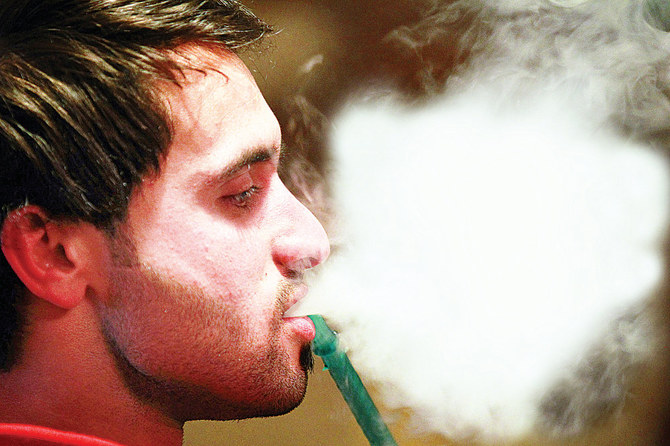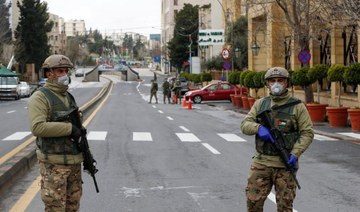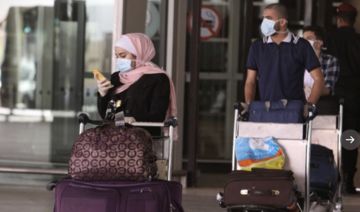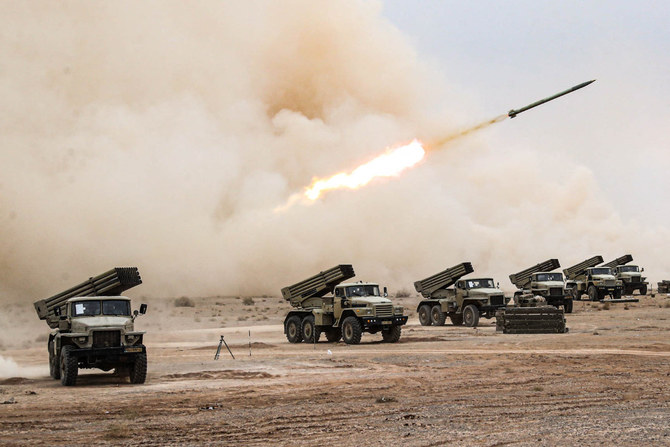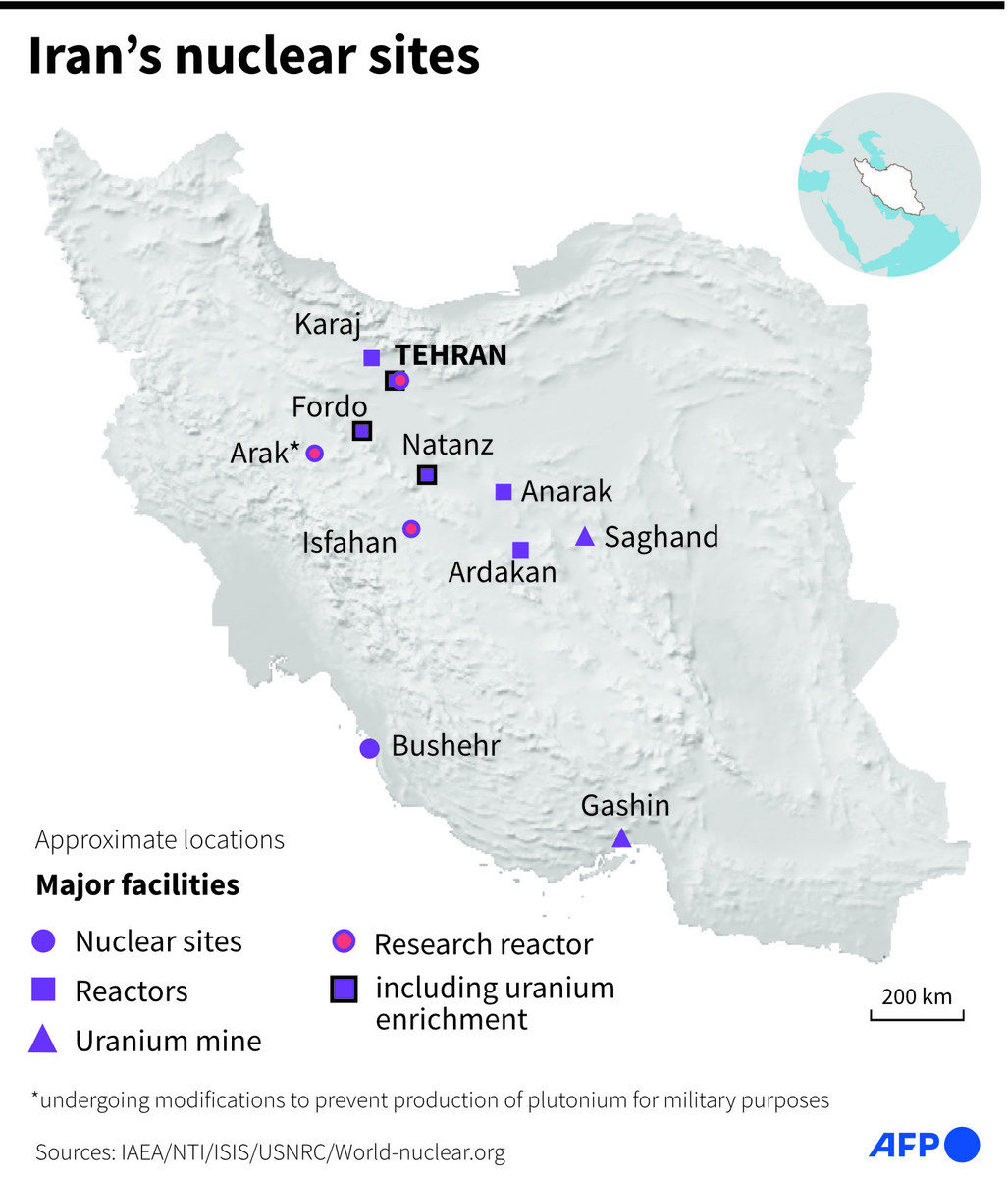AMMAN: Zeina, a 32-year-old Jordanian national, is very particular about protecting herself in the COVID-19 era. She washes her hands regularly, wears a face mask and observes social distancing.
But as she sat with her friends in an upscale shisha cafe in Amman’s Abdoun neighborhood on a recent evening, she was unaware of the fact that she was inhaling 6,000 chemicals every time she drew flavored tobacco smoke through water.
“I tried to kick the habit many times, but meeting friends at cafes forced me to return to it,” Zeina told Arab News. That aspect of her social life has just come to a stop.
On July 1, Jordan extended a ban on all forms of smoking in closed public spaces, citing the fight against the pandemic.
“In order to protect the health and safety of citizens, especially given the COVID-19 pandemic and its aftermath, smoking of all forms (cigarettes, e-cigarettes and shisha) is banned in all closed public spaces,” the Health Ministry said.
On June 23, London-based newspaper The Guardian published results of a study by the World Health Organization (WHO) and Jordan’s Health Ministry that said the kingdom had surpassed Indonesia to have the highest smoking rates in the world.
The study showed that more than eight out of 10 Jordanian men smoke or regularly use nicotine products, including e-cigarettes, and that 66 percent of Jordanian men and more than 17 percent of Jordanian women are smokers.
The Department of General Statistics revealed that by the end of the first quarter of 2020, the total spend on smoking reached 1.6 billion Jordanian dinars ($2.26 billion) — about 6 percent of the country’s gross domestic product — with every Jordanian spending on average 115 dinars on cigarettes per year.
Mohammad Shreem, director of Jordan’s Anti-Smoker’s Society, said when it researched the cost ratio of smoking, it concluded that for every dinar earned as revenue from cigarette sales tax, Jordan spends 12 times as much on treating smoking-related diseases.
The country annually loses 4 billion dinars in medical expenses, and 95 percent of people with lung cancer are smokers, he said, adding: “Their absence also hurts the economy because it lowers productivity.”
On the social level, it is easy to see how popular smoking is in the country. Ads target the Jordanian public across all platforms, including social media.
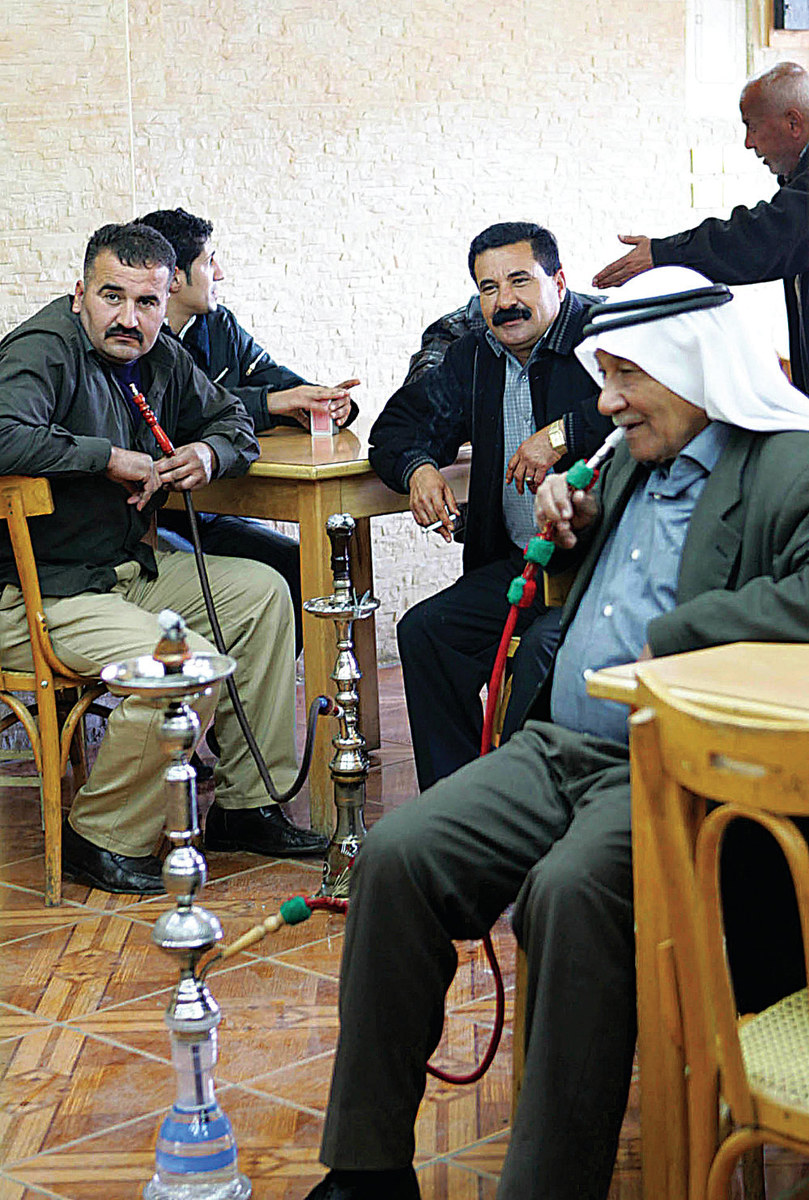
Jordanians swell their time away at a smoking joint. (Supplied)
One of them reads: “Smoke the argileh (water pipe) while driving or have it ordered to your house. Comes ready with red hot coals. Only for $10.”
Jordan has had a ban on smoking cigarettes in public places since 2008, but it was not forcefully implemented.
Before the latest ban that now covers e-cigarettes and shisha, many Jordanians were unaware that smoking in public places is a criminal offense that comes with a fine of 100 dinars and up to a month’s imprisonment.
Ayman, a resident of Amman’s Al-Weibdeh neighborhood, has been smoking for three years because everyone around him is a smoker.
Is he aware of the 2008 law? “I’ve never heard of it and no one is implementing it,” he told Arab News.
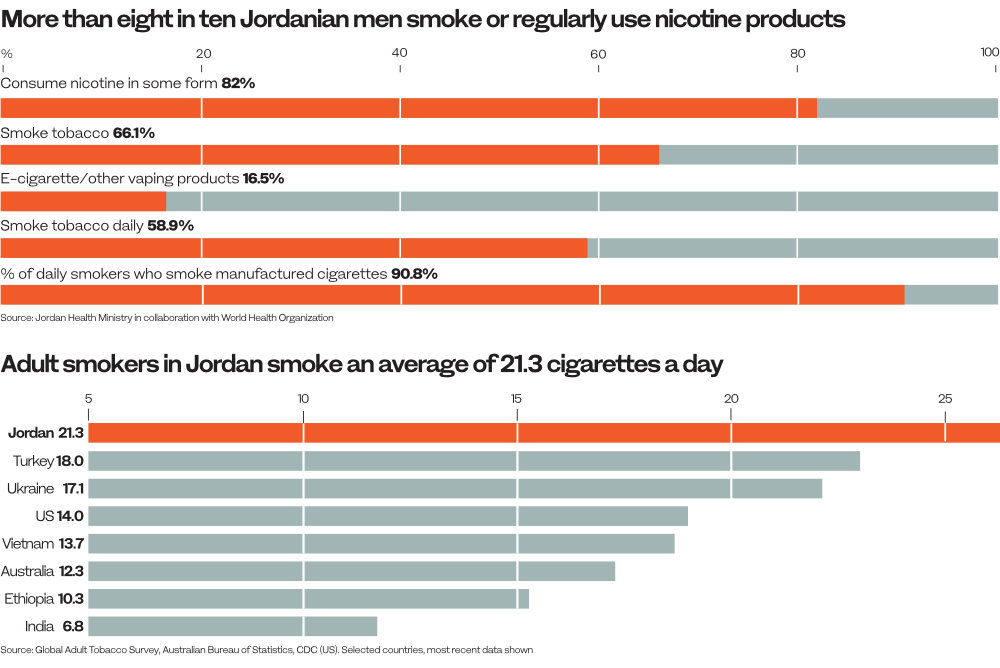
There was a reason for the lack of implementation over the years, said economic expert Mazen Marji.
“The Jordanian government has a stake in the widespread habit of smoking because it profits even more from it than do cigarette companies. It collects 75 percent taxes on cigarettes, which amounts to 1 billion dinars,” he told Arab News.
Many Jordanians put aside money to buy cigarettes, often at the expense of their food budget, and while these may be personal compulsions, “the government takes the responsibility for not implementing the law on smoking in public places,” he said.
Muwafiq Malkawi, a columnist for the daily Al-Ghad newspaper, concurs with Marji on the government’s responsibility.
“We criticize citizens on their lack of awareness (of the dangers of smoking) but let us first look at the faulty government policies on tobacco,” Malkawi wrote in one of his columns.
“This has become a powerful industry, especially because it brings to the government coffers JD 1 billion ($1.4 billion) a year. Cigarette companies are a powerful lobby around the world, and they impact governmental decision-making.”
Cigarettes lobbies, however, are not the only forces at work in Jordan to prevent smoking from losing popularity.
IN NUMBERS
- 6% Share of Jordan’s GDP spent on smoking in 2019.
- 9,000 Annual deaths blamed on smoking-related complications.
- $2.26 billion Total spend on smoking in 2019.
In 2014, the Health Ministry made valiant attempts to enforce the public health law and stop the use of shisha in cafes, but the pushback from cafe owners and investors proved to be too strong.
Eventually a compromise was reached, with a health warning stuck on premises that goes largely unnoticed by the public.
When Arab News spoke to a cross-section of Jordanians on why anti-smoking campaigns fail, they attributed it predominantly to the absence of rigorous implementation of the law, with community pressure and the low price of cigarettes following close behind.
“In Jordan, prices are low and so everyone can buy cigarettes without making a dent in their budget. This is a huge factor that encourages smoking,” said Malkawi.
Marji pointed to the possibility of an increase in smuggling if the cost of cigarettes goes up. “The government will have to fight that as well,” he said.
Shreem pointed to the high mortality rate from smoking-related diseases. “Eight million people die every year worldwide from diseases related to smoking. This is a much higher figure than the rate of fatalities due to the coronavirus until now, yet smoking is still to be listed as a pandemic in the Arab world,” he said.
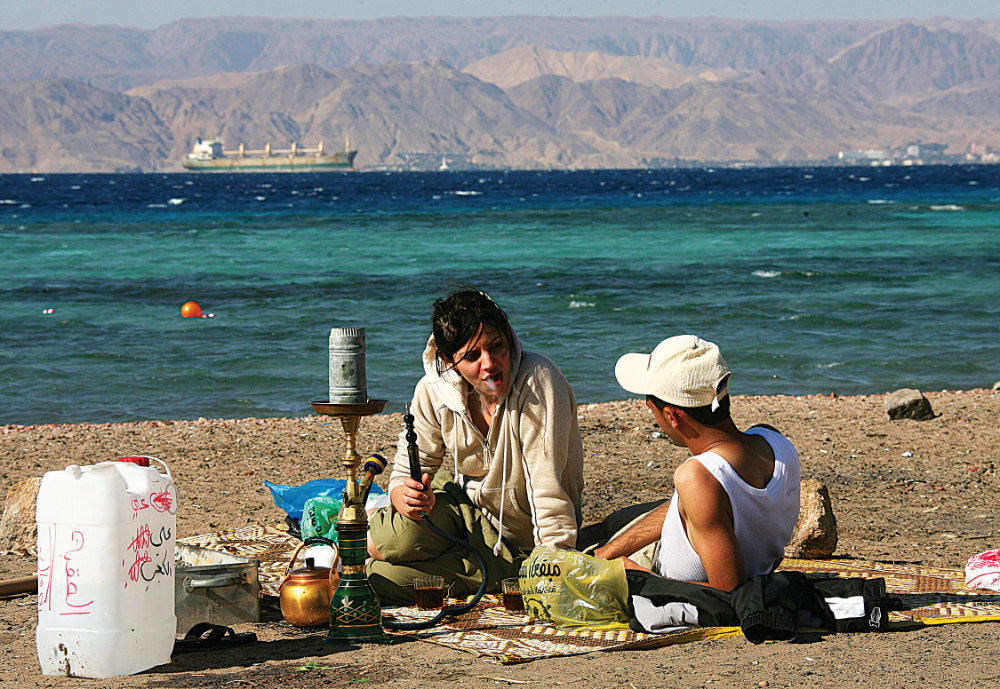
Smoking a traditional water pipe is popular in Jordan’s cafes, above and below, and also on the beach in the city of Aqaba on the Red Sea. (AFP)
Princess Dina Mired, a Jordanian humanitarian and health activist, has spoken on this issue, pointing to smoking’s high cost to public health.
Thanks to lax implementation of the law on smoking, six global companies are spending a lot of money to entice the young to smoke, she said. She welcomed the July 1 ban, and expressed hope that it will be properly implemented.
Firas Al-Hawari, head of the lung unit and the intensive care unit at the King Hussein Cancer Center, told Arab News: “We’re at war with smoking, which is reaching children and adolescents. The problem is getting worse due to e-cigarettes.”
Referring to Jordan’s non-implementation of the WHO’s 2005 Framework Convention on Tobacco Control, which asserts the importance of demand-reduction strategies as well as supply issues, Al-Hawari did not mince words.
“The smoking averages in Jordan are a warning that we are approaching a pandemic of non-communicable diseases," he said.
“With 9,000 people dying every year in the country due to smoking-related health complications, the issue has to become top priority.”
-------------------
@daoudkuttab
• Field research by Mohammad Ersan; video filming by Mohammad Abu Hijah and Mohammad Shannak





